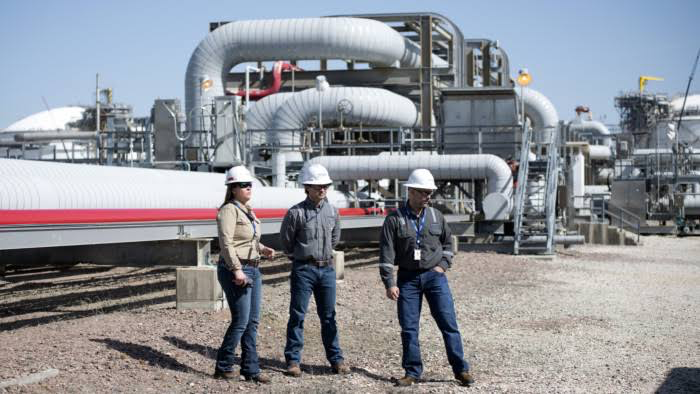The US natural gas industry is facing a crisis as prices hit record lows and supply outstrips demand. Many producers are shutting down wells, cutting spending, or selling out to rivals to cope with the slump.
The main culprit is the relentless increase in US gas output, driven by oil companies that pump gas as a byproduct of their crude production. As oil prices have recovered from the pandemic-induced crash, oil drilling has ramped up, bringing more gas to the market.
This has created a glut of gas that has overwhelmed the efforts of gas-focused producers to curb their own output and balance the market. Even cold weather and rising exports of liquefied natural gas (LNG) have failed to boost prices significantly.
The situation is especially dire for BKV Corp, a Denver-based gas producer that spent $2.7 billion in the last five years to acquire 4,000 gas wells and two gas-fired power plants. It also pledged $250 million to build a dozen underground carbon capture and storage sites to make its gas more climate friendly.
But BKV’s ambitious plans have been thwarted by the collapse in gas prices, which have fallen to an inflation-adjusted 30-year low of $1.59 per thousand cubic feet. The company’s profits plunged from $410 million in 2022 to $79 million in the first nine months of 2023. It narrowly avoided loan defaults with a $150 million bailout by its parent, Thailand’s Banpu Public Co.
BKV’s CEO Christopher Kalnin said he did not anticipate the price drop, which he blamed on the surge in associated gas from oil wells. He said he still hopes to launch an initial public offering (IPO) and expand his gas-to-power empire, but he needs prices to recover first.
“We absolutely want to be the biggest natural gas producer in the country. That’s my ambition,” Kalnin said in December at his first carbon sequestration site in Bridgeport, Texas.
A glimmer of hope?
Some analysts and industry executives believe that gas prices will rebound in the second half of 2024, as LNG demand picks up and new export projects come online. The US has four LNG plants with permits that could start operating later this decade, adding up to 6.3 billion cubic feet of gas demand per day.
However, there are also risks that could derail the recovery. The Biden administration has paused reviews of new gas-export permits, potentially jeopardizing future LNG projects. Environmental groups have also challenged the permits of existing LNG plants, citing their impact on climate change and local communities.
Moreover, the oil industry shows no signs of slowing down its production, despite pressure from investors and activists to reduce its carbon footprint. The US is expected to pump 105 billion cubic feet of gas per day this year, up 2.5 billion from last year.
For gas producers like BKV, the challenge is to survive the current downturn and hope for better days ahead. Kalnin said he is confident that his company can weather the storm, thanks to its low-cost operations and diversified portfolio.
“We have a very resilient business model,” he said. “We’re not going anywhere.”
Source: Reuters



